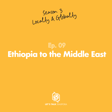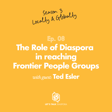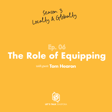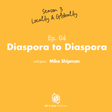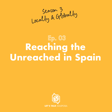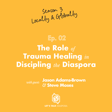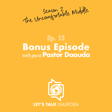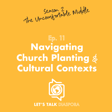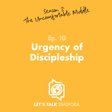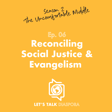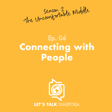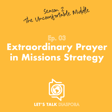
Sharing with Hindus with Ken Roberts
In this podcast episode, the hosts discuss the challenges and approaches to sharing the Christian faith with Hindus. They emphasize the need for cultural sensitivity and adaptation in cross-cultural communication. The conversation is focused on engaging with high-caste Hindus, both in India and in the diaspora.
The hosts introduce Ken Roberts, a guest with 15 years of experience in cross-cultural communication with high-caste Hindus in India and North America. Ken shares his journey of redirecting his life from a corporate career to a passion for serving and sharing Jesus with Hindus.
Ken discusses several challenges faced when sharing Christianity with Hindus. The hosts and Ken explore the role of cultural misconceptions in hindering effective communication. They stress the need to recognize the diversity within Hinduism and avoid projecting a singular view onto all Hindus. Ken also advises Christians to learn about Hindu culture, worldview, and beliefs to communicate more effectively.
The conversation shifts towards the concept of contextualization, which involves adapting the message of the gospel to resonate with the cultural context of the audience. Ken explains that contextualization is a biblical principle seen in the Old and New Testaments. He encourages listeners to study the Bible through the lens of cross-cultural ministry, learning from examples of adaptation in the scriptures.
Resources and suggestions:
-Disciple Making Among Hindus by Tim Shultz
-Christian Barriers to Jesus by Paul Pennington
-Ten Tips for Ministering to Hindus by HL Richard
Desiland Masala Podcast:
Bhajans (Worship Songs to Jesus/Yeshu):
